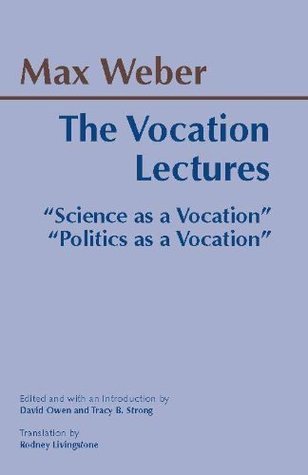What do you think?
Rate this book


Originally published separately, Weber's "Science as a Vocation" and "Politics as a Vocation" stand as the classic formulations of his positions on two related subjects that go to the heart of his thought: the nature and status of science and its claims to authority; and the nature and status of political claims and the ultimate justification for such claims. Together in this volume, these newly translated lectures offer an ideal point of entry into Weber's central project: understanding how, as Weber put it, "in the West alone there have appeared cultural manifestations [that seem to] go in the direction of universal significance and validity."
176 pages, Kindle Edition
First published January 1, 1919
Kõik loodusteadused annavad meile vastuse küsimusele: mida me peame tegema, kui tahame elu üle tehniliselt valitseda? Kas me aga peame selle üle tehniliselt valitsema ja kas me tahame seda teha, ning kas sel lõpuks on tegelikult mõtet - selle jätavad loodusteadused täiesti lahendamata või võtavad seda oma eesmärkide eeldusena.